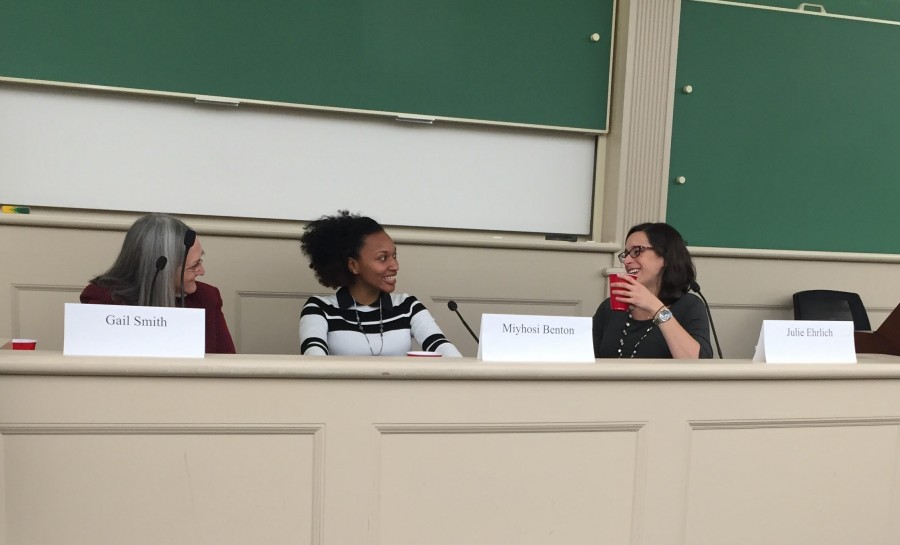NYU Law Highlights Issues with Being Pregnant in Jail
NYU Law held a panel to talk about the mistreatment incarcerated women being pregnant in jail.
March 31, 2016
Many women who are incarcerated are pregnant and are often mistreated while in prison, and the event held by NYU Law Students for Reproductive Justice on Wednesday hoped to shed light on the severity of this mistreatment.
Miyhosi Benton, a formerly incarcerated woman, and Gail Smith, director of the Women in Prison Project, were the two panelists for the event hosted by NYU Law Students for Reproductive Justice.
“For pregnant women in prison, reproductive rights also include the right to raise a child,” Smith said. “Their right to support and care during and after their pregnancy.”
Pregnancy in prison is often rife with shackling, inadequate nutrition, inconsistent prenatal care and risk of violence from correction officers.
Shackling — the use handcuffs, leg irons and belly chains to ensure that a prisoner does not try to escape — was a point of attention at the panel. Benton, a leader in the anti-shackling movement, attended her trial when she was five months pregnant. There, she was shackled for 15 hours.
“I was in extreme pain,” Benton said. “The judge didn’t even show up for my trial.”
Shackling is also used during labor. Many women would be shackled with one wrist and one ankle to the delivery bed, making the delivery longer and more painful.
As of 2015, 28 states do not protect incarcerated pregnant women from shackling. Though efforts have been ongoing — a 2015 New York law could protect women from shackling and bar correctional staff from the delivery room — legislature has proven to be ineffective in the past.
In 2009, a law passed in New York banning the use of shackles during labor. This proved ineffective — 23 out 27 women surveyed were shackled during labor while in the custody of the New York State Department of Corrections and Community Supervision.
As it stands now, mothers in prison are separated from their children within 24 hours after giving birth. In addition, mothers are denied the right to breastfeed, resulting in complications like separation anxiety for the baby.
“Even mothers who are incarcerated for a short time often lose their children permanently to foster care system,” Smith said.
There are prison nurseries that allow the mother to live with her child for up to 18 months while still incarcerated. However, there are no nurses in the nursery, only correction officers.
“Prison nurseries are sort of good, you get some form of bond but there are cons too,” Benton said. “We don’t need protection. We need support. We need advice.”
Email Kate Howard at [email protected].


























































































































































